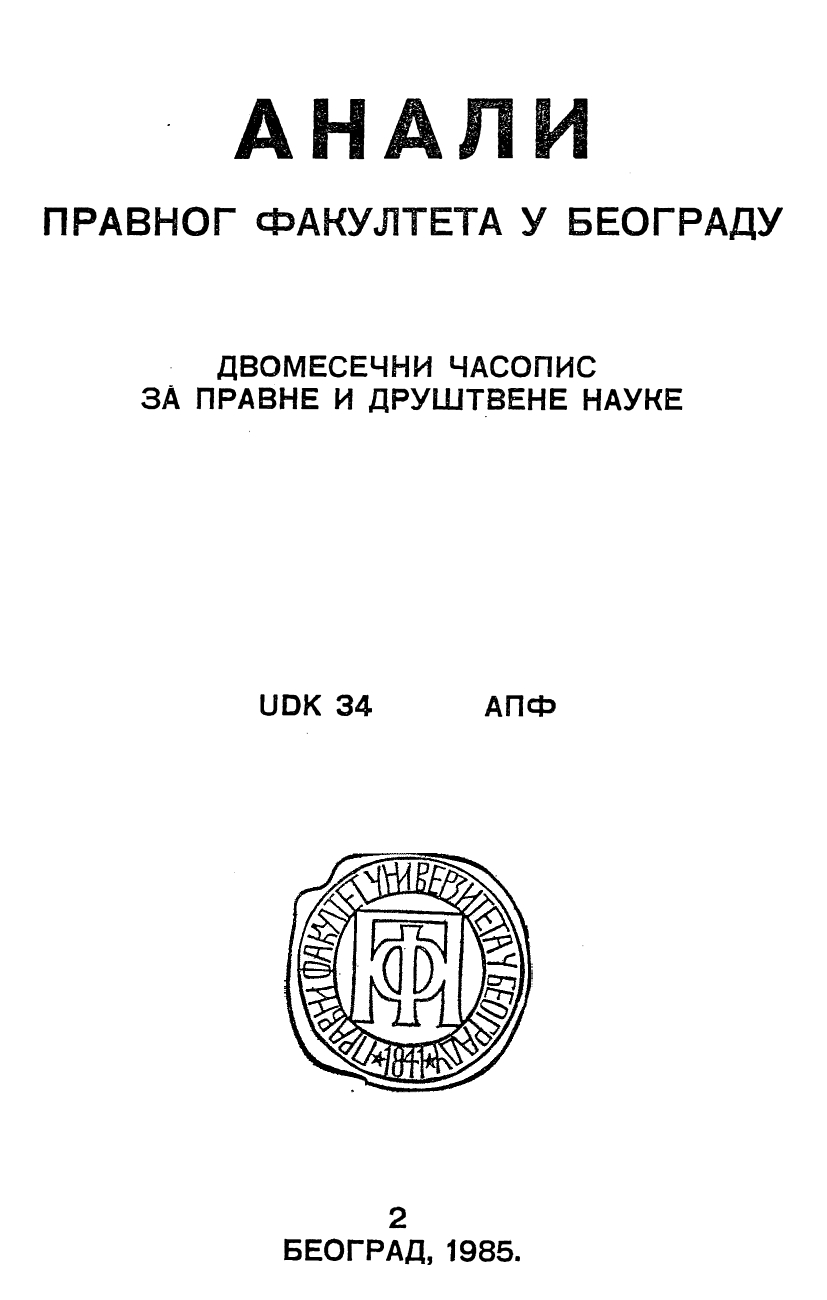О ГЛЕДИШТИМА ХРВАТСКИХ ПРВАКА ЈУГОСЛОВЕНСКЕ НАЦИОНАЛНЕ СТРАНКЕ У ИЗБЕГЛИШТВУ ПРЕМА ПИТАЊУ ФЕДЕРАЛИЗАЦИЈЕ ЗЕМЉЕ
THE VIEWS OF CROATIAN LEADERS OF THE YUGOSLAV NATIONAL PARTY IN EXILE ON THE ISSUE OF FEDERALISATION OF THE COUNTRY
Author(s): Mirjana M. AnđelkovićSubject(s): Politics / Political Sciences
Published by: Правни факултет Универзитета у Београду
Summary/Abstract: The issue of further redesigning of state, emerging after the creation of the Province of Croatia (Banovina of Croatia) in August of 1939 has been raised during the war among Party’s representatives in exile Within the framework of the endeavour to formulatea unified .political program of the government. These considerations had as their result the conception of the three-fold Yugoslav federation which would be formed out of national states of Serbian, Croatian and Slovene provenience. Two of Croatian leaders of the Yugoslav National Party (Serbo-Croatian abbreviation — JNS), namely Budislav Grga Anđelinović and Manfred Paštrović, who emigrated out the country with the Simović's government, obviously were aware at that moment, how utopian would be even to think in terms of returning back to the Sixth of January unitarism and to Alexandrian integral Yugoslavianism. They saw in the new federalist order therefore a way of preserving Yugoslav statehood. They accepted it in the hope that in course of time, and independently of the forms of state life and activities, the feeling of Yugoslav national unity would spontaneously prevail. But while Pastrovic already accepted the above mentioned conception making even a draft constitution containing consequent implementation of the above principle, Anđelinović thought that setting up of frontiers between national domains would amount to conflicts over Serbo-Croatian territorial demarcation. He advocated therefore the division of the country into nine provinces (banovinas) with their former borders, or a division into eight separate units of the kind. The views of Croatian leaders of the JNS are reviewed in the present study separately due to the specificity of the position they occupied within the framework of Yugoslav political emigration. Namely, the Croatian Peasants’ Party almost completely excluded them out of the political cooperation, so that they did not take any part in political decisionmaking.
Journal: Анали Правног факултета у Београду
- Issue Year: 33/1985
- Issue No: 2
- Page Range: 161-172
- Page Count: 12
- Language: Serbian

